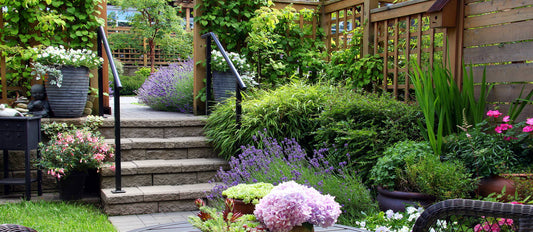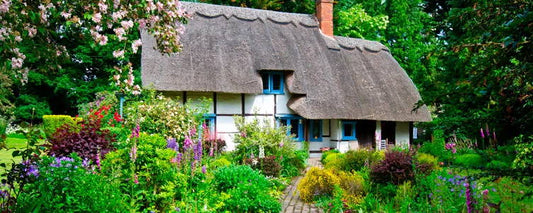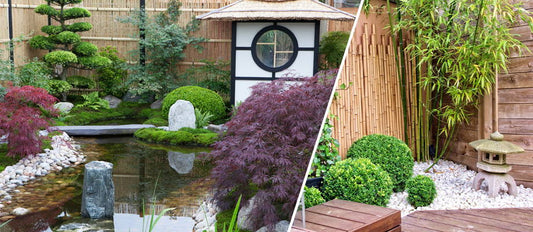The Bakker.com team always strives to make people happy with greenery and by bringing them closer to nature, and to make nature a bit more sustainable. Would you like to lend a hand? All you need to do is switch to organically grown plants, flower bulbs and potting soil. These plants are grown in a completely natural way, which means that no chemicals end up in the soil. Putting these plants and bulbs in your garden will help you keep your soil healthy. Get to know more about the growing process of these plants and bulbs, as well as the benefits of using them.
Growing the natural way
When growing organic plants or bulbs it is mandatory that the entire process is a natural one. This means that no chemical pesticides or artificial fertilisers may be used at any point in the process. All organisms involved in cultivation must be kept alive. It starts when the plants are babies. Bakker's organic growers work with organically certified seeds or cuttings from their own plants, so they can be sure that no pesticides have been used in a preliminary process.
After spending an initial growth period in a greenhouse, the small plants are planted in a natural situation. Then nature does the hardest work. The organisms in and above the ground then take over the plant care, as it were. Good bacteria and fungi are found in the potting soil the organic plants are planted in. These good micro-organisms bring nutrients to the plant and in exchange they receive sugars from the plant. These bacteria and fungi attract other animals that feed on them. This creates an complete food chain around the plants.
The advantage of this is that the insects that feed on the plant are themselves eaten by, for example, aphids, frogs or other smaller animals. This means that no pesticides are needed to keep the plant healthy. However, the plants do still receive water and natural nutrition from the grower, when needed. The position of the moon helps to determine the best times for feeding and watering. For that reason, the grower's working hours no longer determine when the plants need to be cared for – nature does. So the plants are looked after with a lot of love and care. This ultimately results in beautiful plants that you can put in your garden. Have a look at Bakker's organically grown garden plants.
Organic gardening: not just good for nature – good for you too
So what are the benefits for you if you switch to organic gardening and put these plants in your garden? Of course, it is good for nature. By growing naturally, fewer chemical pesticides end up in the soil, so they do not end up in your garden either. All the creatures in the garden love this. Many of Bakker's organic flowering perennials also attract bees. The bees get nectar from the flowers all year round and they also protect your plants. So you are truly creating a home for biodiversity. In addition to the benefits for nature, there are additional advantages for you! The plants are often stronger than plants grown conventionally. Because of the natural care, the plants build their own immune system and are more resistant to pests and diseases. This means that they need less care from you. Combined with organic potting soil, these plants will boost the quality of your soil as well. Soil life will also start to regenerate and help you take the first steps towards an organic garden.
Finally, every plant in an organic crop is slightly different. Just like people, these plants have their own characteristics. You can see this, for example, in the shape of the branches or the length of the stems. This beauty of imperfection is a great way to give your garden personality.
European certification
The European Union sets strict guidelines for growers and suppliers who call themselves organic. At no time during the cultivation process may chemical pesticides or artificial fertilisers be used and genetic modification is also prohibited. For each country, the European Union has appointed an independent body that must assess these guidelines several times a year. When a grower or supplier meets the requirements, the company receives an organic certification. When buying organic plants, it is therefore important to look carefully for the European organic logo. It is a green logo with a leaf with white stars on it, and you’ll see it on all of Bakker's organically grown products.
Want to take your first steps towards organic gardening? Take a look at Bakker's organically grown range




